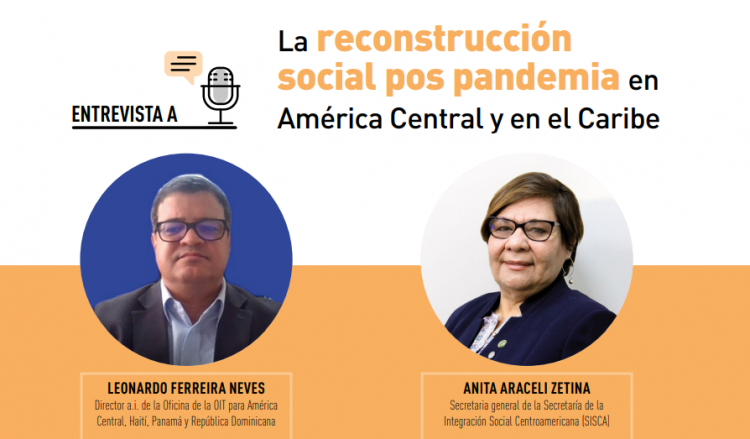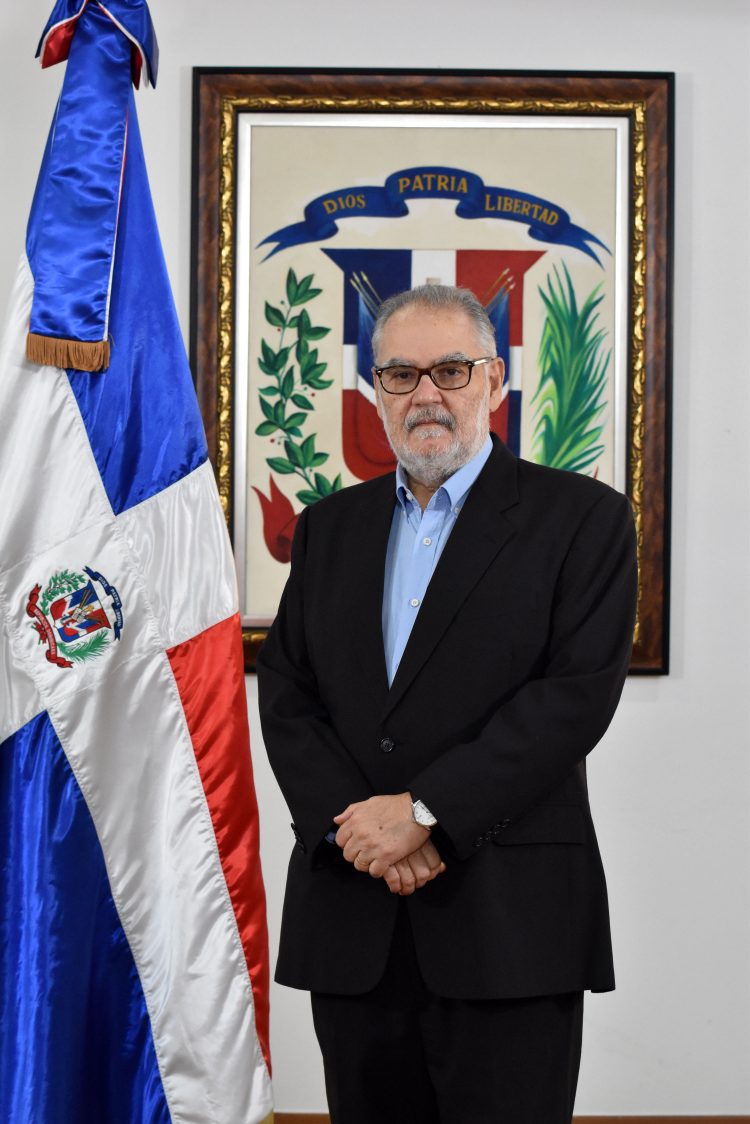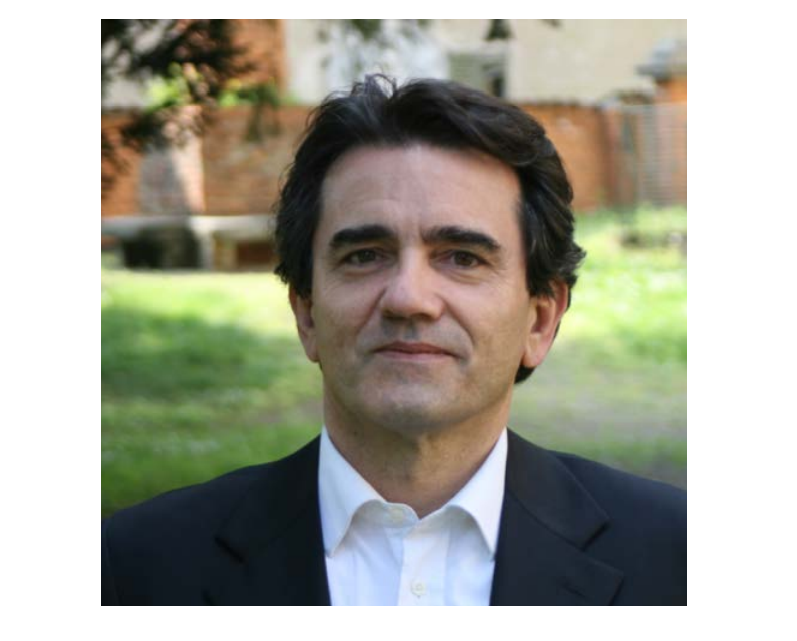Recíprocamente spoke to Leonardo Ferreira Neves (ILO) and Anita Araceli Zetina (SISCA) about the challenges for social integration in the post-pandemic era.

Interview by Federico Nastasi , Local technician in Central America and Mexico of the EUROsociAL+ Programme
Leonardo Ferreira Neves is the AI director of the ILO Office for Central America, Haiti, Panama and the Dominican Republic. He has a Degree in Economics from the University of San Pablo and Master in Economics from the University of Panama. After a career in the government sector of his country, Brazil, he joined the ILO in 2004.
Anita Araceli Zetina is the general secretary of the Central American Social Integration Secretariat (SISCA). She has a Master of Arts from the Pontificia Universidad Católica, the Dominican Republic, and a Bachelor of Science degree from the University of Murray, United States. She has been the UNICEF Programme Coordinator in Belize, her native country.
This publication deals with social pacts, the need to come to agreements between different interests to mobilise public investment and encourage social cohesion. The year 2021 marks the bicentennial of the independence of Central America and 30 years of Central American integration. Is this anniversary an opportunity for new social pacts in Central America, and is there a need to build them?
Zetina: As we celebrate the bicentennial, the pandemic and adverse natural phenomena are threatening to delay some of our development indicators. However, every crisis is also a window of opportunity for reconstruction.
Despite major financial difficulties, the governments of the region have adopted measures that have reduced the impacts of the pandemic.
Many of the region’s social problems have structural causes, so we must connect recovery actions with the strategic objective of strengthening social protection policies and systems. Higher levels of investment are required to achieve this, which is complicated in a situation like this, marked by major fiscal limitations. This situation makes building agreements and establishing pacts a matter of great importance.
The Central American Integration System is a consensus-building space that has strategic instruments, such as the Regional Integral Social Policy of the Central American Integration System 2020-2040 (PSIR-SICA) and the Plan for Recovery, Social Reconstruction and Resilience of the SICA Region (Plan 3R). These regional frameworks determine how to advance in terms of integration, but they also serve as inputs to broaden the dialogue that gave rise to them.
According to the ILO Report on Social Protection, to respond to COVID-19, “governments have introduced social protection, and are guaranteeing social stability”. In Central America, not all countries have been able to organise a suitable response to the situation, due to lack of funds and institutional weaknesses. What lessons can be learned from this situation?
Ferreira: The pandemic has exposed the weaknesses of existing social protection systems in Latin America and the Caribbean. In Central America, the situation is the same. The difficulties meeting social protection aims have become exacerbated. Before the pandemic, the coverage of contributory social protection in Latin America and the Caribbean reached 46.5% of people in employment.
On the other hand, in recent years, the countries had implemented or expanded different non-contributory programmes. Most countries in the region have non-contributory programmes for social policy and income security in old age[1]. However, over 49% of people over 65 in the region do not receive a pension. When it comes to income security programmes for people of working age, these are diverse and usually combine services for labour inclusion and improving employability. None of the countries in Central America have unemployment insurance.
Regarding social protection in health, although many countries adopt universal coverage, in practice there are barriers to access and quality.
This pandemic shows that social protection is a human, economic and social need, crucial to ensure progress and sustainability in line with the Sustainable Development Goals of the 2030 Agenda for Sustainable Development.
The strategies to overcome the crisis focus on collaboration between countries and a strong drive for social cohesion at the top of the agendas. One example in Europe is the Next Generation EU. Something similar has happened in Central America. What is the advantage for each country of thinking about and implementing recovery on a regional scale?
Zetina: It is important to note the success of EU actions aimed at tackling the pandemic. In Central America, we have also observed a tendency to increase public spending in the social sector. The knowledge that recovering from the crisis entails investing in social affairs has led to the proposed 3R Plan. At this point, it is important to mention the European Union’s contribution through EUROsociAL+ and also that of different instances of the United Nations. The SICA region and its integration process is a strategic platform for building consensus that enables countries to implement joint policies. In this vein, the Social area of the System has the PSIR-SICA, from which the 3R Plan is derived. Different actions are promoted based on these instruments that encourage the coordination of national efforts with regional initiatives. The 3R Plan clearly reflects this regional integration as a strategic platform. It does not replace national recovery plans, but is the first regional recovery plan that where the social aspect is at the centre of recovery, alongside the economic axis, not to forget environmental and risk management elements.
The slight recovery in employment is led by informal occupations. It seems that informality is an intrinsic structural characteristic of the economies of the region. What short-term and long-term measures can be taken to counteract this trend?
Ferreira: The economic recovery of recent months is not fully reflected in the labour markets in Latin America. The recovery of jobs has been led by the growth of informal employment. Central American countries feature high levels of labour informality, and the current situation is tending to increase these levels.
In this crisis, formal and informal employment alike contracted greatly. It is too early to say whether previously formal occupations have become informal, but it is a latent risk. As stated in ILO Recommendation 204, formalisation policies should have a triple objective: to facilitate the transition from informality to formality; protect employment and companies that are already formal; and promote formal job and business creation.
[1] ILO (2020): Regional technical note “Social protection in Latin America and the Caribbean in times of pandemic. Labour panorama in times of COVID-19”.


